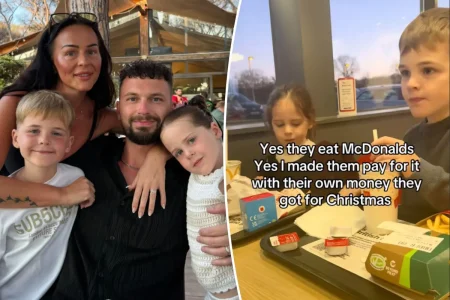Estrangement and its nuances:
Estrangement, the severance of ties with family members, often evokes complex emotions and uncertainties, particularly regarding the continuation of perfunctory social rituals. The letter writer from Arizona, "Estranged 364 Days," grapples with the obligatory exchange of birthday greetings with her estranged siblings, despite harboring deep resentment towards them for past grievances, particularly their perceived exploitation of their late parents. She questions whether estrangement should encompass all forms of communication, including birthdays, and expresses a longing for the peace she experienced before resuming these superficial interactions. Abby validates her feelings of righteous indignation, acknowledging that the pre-existing closeness has dissolved. She advises the writer to discontinue the birthday greetings if they cause distress, suggesting that the siblings may cease their greetings in response. This situation highlights the ambiguous nature of estrangement, where formal social conventions can clash with the underlying emotional reality of severed relationships. Choosing to uphold or discard these conventions becomes a personal decision, reflecting the individual’s desire for emotional peace and boundary setting.
Navigating the complexities of estrangement:
The complexities of estrangement are further illustrated by the varying degrees of emotional distancing that can occur within families. While "Estranged 364 Days" experiences intense resentment and wishes to minimize contact, other scenarios might involve less acrimony, potentially allowing for limited interaction without reigniting conflict. The specifics of each estrangement determine the most appropriate course of action regarding communication, requiring careful consideration of individual emotional needs and the potential for further distress. Maintaining emotional well-being during estrangement necessitates establishing clear boundaries and prioritizing one’s own mental health. This may include limiting contact, declining social obligations, or seeking professional guidance to process the emotional complexities involved. Ultimately, the objective is to create a space where personal healing and emotional equilibrium can be achieved despite the fractured family dynamics.
Survivor’s guilt and the grieving process:
The second letter delves into the profound realm of grief and survivor’s guilt. The writer, "Her ‘Sister’ in Michigan," mourns the suicide of her close friend, two years after the tragic event. She struggles with the pervasive feeling that she could have done more to prevent her friend’s death, despite rationally understanding that she bears no responsibility. This persistent guilt, known as survivor’s guilt, exemplifies the complex psychological aftermath of loss, particularly in cases of sudden and traumatic death. The writer’s annual pilgrimage to new places, chosen with her deceased friend in mind, reflects her ongoing connection to the lost loved one and her attempt to honor her memory. However, the lingering guilt hinders her ability to fully grieve and cherish the positive memories they shared. Abby’s compassionate response acknowledges the normality of these feelings and recommends seeking support from a grief support group or therapist. This emphasizes the importance of external resources in navigating the complex emotional landscape of grief and overcoming survivor’s guilt.
Coping mechanisms and finding solace:
Coping with survivor’s guilt requires acknowledging the irrationality of the self-blame and focusing on honoring the memory of the deceased in healthy and constructive ways. Therapy and support groups provide a safe space to explore these feelings, learn coping mechanisms, and connect with others who have experienced similar losses. The writer’s annual trips, while symbolic of her enduring bond with her friend, might inadvertently reinforce the guilt if they become a form of self-punishment or a desperate attempt to rewrite the past. Transforming these trips into celebrations of her friend’s life, rather than expressions of guilt, could be a valuable step in the healing process. This involves shifting the focus from what could have been done differently to cherishing the positive experiences they shared and finding ways to keep the friend’s memory alive in a way that brings comfort rather than pain.
The spectrum of grief and its impact:
Grief manifests in diverse ways, influenced by individual personalities, the nature of the relationship with the deceased, and the circumstances of the death. Survivor’s guilt represents a specific facet of grief, often intensified in cases of suicide, unexpected deaths, or when the survivor feels a sense of responsibility for the deceased’s well-being. Understanding the nuanced nature of grief is crucial in navigating this challenging emotional terrain. While the writer’s feelings are common, they can also become debilitating if left unaddressed. Seeking professional guidance provides tools and strategies to process the grief, challenge the irrational guilt, and ultimately move towards acceptance and healing. The healing journey is not linear, and relapses of guilt or sadness are to be expected. However, with support and self-compassion, individuals can gradually find a way to honor their loved one’s memory without being consumed by self-blame.
The role of support systems in healing:
The importance of support systems in the healing process cannot be overstated. Grief support groups offer a sense of community and shared experience, allowing individuals to realize they are not alone in their struggles. Therapists provide personalized guidance, helping individuals understand their grief reactions, develop coping mechanisms, and challenge negative thought patterns that contribute to survivor’s guilt. Family and friends can also play a crucial role, offering emotional support, practical assistance, and a listening ear. Open communication about the loss can facilitate healing, while suppressing emotions can exacerbate grief and prolong the healing process. Creating a supportive environment for individuals experiencing grief involves understanding their unique needs, respecting their coping mechanisms, and offering practical and emotional assistance without judgment. Ultimately, healing from grief requires a combination of self-care, professional support, and the nurturing presence of loved ones who can provide comfort and understanding during this difficult time.













